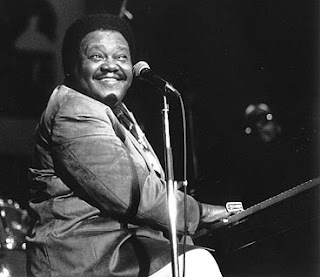James Joseph Brown (May 5, 1933 - December 25, 2006) is an American singer andsongwriter. Finally called "Godfather of Soul" Brown began singing in gospel groups and made his way up. It has been recognized as one of the most emblematic figures of popular music in the 20th century and is famous for the vocal and dance fever. He also called the "hardest working man in show business."
. A singer, prolific songwriter, dancer and bandleader, Brown was a major force in the music industry, leaving a trace in many artists' Although his career declined during the peak age gold hip-hop, Brown's work found new life in the form of digital sampling, it will in most samples of the artist in the history of musical genres Brown also affect the rhythm of African popular music, such as afrobeat, and mbalax, and provides a template for go-go. music.
Brown began his professional music career in 1956 and rose to fame in the 1950s and early 1960s on the strength of his thrilling live performances and a series of hits. Although a variety of personal problems and setbacks, he continued to score hits in every decade until 1980. In addition to praise in music, Brown was also present in American politics during the years 1960 and 1970.
Early Life
James Brown was born Susie Brown and Joseph ("Joe"), James Gardner (who changed his name to Brown after Mattie Brown, who raised him). Although Brown was named after his father, his name has been reversed by mistake in the birth certificate, and instead becameJames Joseph Brown, Jr. As a young child, Brown was called Junior. When he lived with his aunt and cousin, he was named Little Junior since the nickname was also Junior cousin. James Brown is African American with Native Americans, particularly the Apache, a descendant by his father, and Asian descent.
Brown and his family live in extreme poverty. When Brown was two, his parents separated after his mother left his father for another man. After his mother left the family, Brown continued to live with his father and his girlfriend lived until he was six. After that, Brown and his father moved to Augusta, Georgia.
His father sent him to live with an aunt, who runs a brothel. Even though Brown lived with relatives, he spent long periods of time alone, dragging in the street and rushed to get out. Brown managed to stay in school until he dropped in the seventh year.
During his childhood, Brown earn money shining shoes, sweeping the shop, sale and trade of old stamps, washing cars and dishes and singing in talent contests. Brown also presented a change Buck dance to entertain the troops from Camp Gordon in early World War II as their convoys traveled over a canal bridge near his aunt's house. Between getting the money from the venture, Brown taught himself to play harmonica given to him by his father. He learned to play guitar from Tampa Red (the "dating" a girl from the house of her aunt), in addition to learning to play piano and drums of others. Brown was inspired to become an entertainer after watching Louis Jordan, jazz and popular R & B artist in the 1940s, and his eardrum Five in a short film "Caldonia."
As an adult, Brown legally changed his name to remove the "Jr." designation. In his spare time, Brown has spent time in various practical skills in the shop Augusta-area and small crimes. At age sixteen he was convicted of armed robbery and sent to a juvenile detention center in northern Toccoa in 1949.
Although Brown in reform school, she met Bobby Byrd, who first saw Brown perform in prison. Byrd watched and admired Brown's ability to sing and play. Byrd's family helped Brown get early release after serving three years of his sentence. The authorities agreed to release Brown on condition he would get a job and not return to Augusta or Richmond County. After working as a boxer and baseball pitcher in baseball semi-professional (promising career ends with foot injury), Brown turned to energy toward music.
Careers
Brown career spanning decades, and a large impact on the development of many different musical genres. Brown moves on a continuum ranging from blues and gospel-based forms and styles to approach music very Africanized decision. Brown has appeared in concerts, first making rounds through the "Chitlin 'Circuit", then across the country and later around the world and appearing on the show on television and movies. Although he contributed much to world music through his hitmaking, Brown holds the record for most singles drawn from the artist on the Billboard Hot 100 without ever hitting number one on the table.












